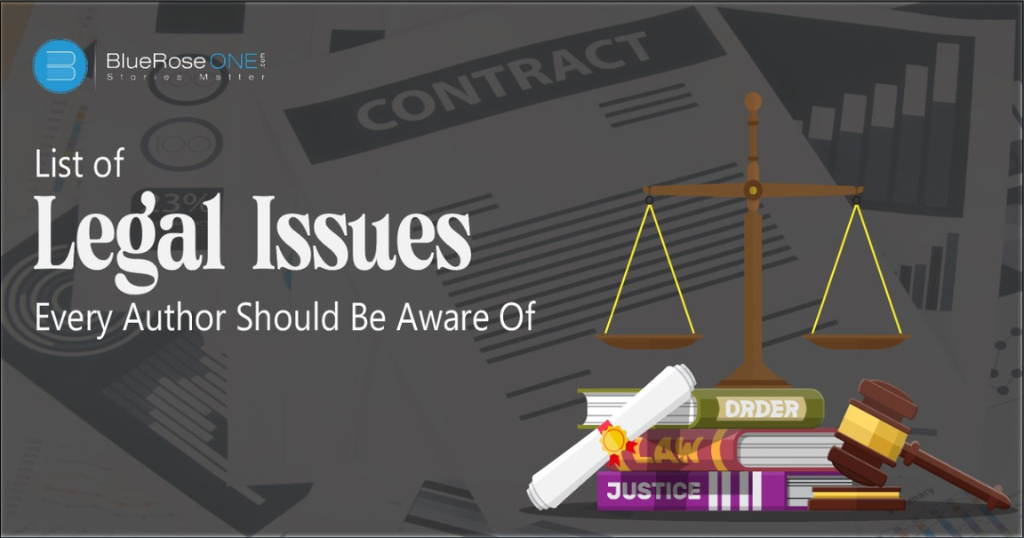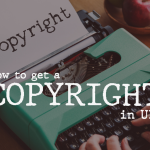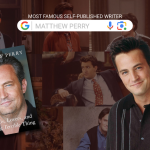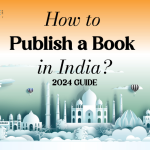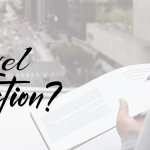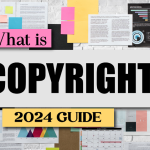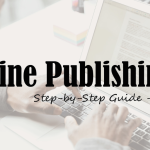Writing a book is a labour of love, dedication, and creativity. However, amid the excitement of bringing your words to the world, it’s crucial to navigate the complex terrain of legal considerations. Authors must be aware of various legal issues to protect their work and themselves and ensure a smooth publishing journey.
Read: How much should my book cost? 7 Tips for pricing your book
In this comprehensive guide, we’ll explore the key legal issues every author should be aware of before publishing a book.
- Copyright Law: Safeguarding Your Intellectual Property
- Contracts and Agreements: The Foundation of Legal Relationships
- Libel and Defamation: Navigating the Thin Line
- Privacy Issues: Respecting Boundaries
- Trademark Considerations: Avoiding Branding Pitfalls
- Plagiarism: Steer Clear of Unwanted Controversy
- Contract Termination: Knowing Your Exit Options
- Censorship and First Amendment Rights: Balancing Freedom of Expression
- Collaboration Agreements: Navigating Co-Authorship Challenges
- Electronic Publishing and Digital Rights: Navigating the Digital Landscape
Copyright Law: Safeguarding Your Intellectual Property
You may also like: Unlocking Success: How to Sell Books Online Effectively
Contracts and Agreements: The Foundation of Legal Relationships
Contracts are the bedrock of legal relationships in the publishing world. Authors must thoroughly comprehend and negotiate the terms before entering into any agreement. Contracts define the rights and obligations of all parties involved.
Key components of a publishing contract include royalty rates, specifying the percentage of sales the author receives. The contract outlines the rights granted, determining whether the publisher has exclusive rights and the duration of these rights. Termination clauses detail the conditions under which either party can end the contract.
Consider an author signing a publishing contract. The terms should specify the royalties, the scope of rights granted (e.g., print, digital), and any obligations like deadlines for delivering manuscripts. A well-negotiated contract ensures a fair and transparent relationship between the author and publisher.
You may also like: 150 Useful Tone Words to Describe Tone | Explanation with Examples
Libel and Defamation: Navigating the Thin Line
You may also like: Top 10 Best Biographies of All Time
Privacy Issues: Respecting Boundaries
Respecting privacy is a fundamental ethical and legal consideration for authors, particularly when delving into non-fiction or personal narratives. Invasion of privacy claims can arise if an author reveals private, intimate, or embarrassing facts about an individual without their explicit consent.
For instance, if an author is penning a memoir and includes sensitive details about a real person’s health or personal life, it’s crucial to obtain consent. Without it, the individual may have legal grounds to claim an invasion of privacy. Exceptions exist, such as when the information is a matter of public interest or already publicly disclosed.
Understanding these nuances is vital for authors to strike a balance between storytelling and respecting the rights and privacy of the people involved. Authors can avoid legal complications by seeking permission or carefully navigating the exceptions when writing about real individuals.
Trademark Considerations: Avoiding Branding Pitfalls
Authors must navigate the landscape of trademarks to avoid legal entanglements. Trademarks include elements like names, logos, and slogans that identify and distinguish products or services. Using trademarks without proper authorization can lead to legal challenges.
For instance, if an author titles their book using a phrase that’s a registered trademark for a well-known brand, it could result in trademark infringement. Researching existing trademarks and ensuring that the chosen title, cover design, or any other elements don’t encroach upon established trademarks is crucial.
By respecting trademark rights, authors protect their work from legal disputes and maintain a positive reputation. Creativity can still thrive within the bounds of trademark law, as long as authors are vigilant and considerate of existing intellectual property.
Plagiarism: Steer Clear of Unwanted Controversy
You may also like: The Rise of Self-Publishing and What it Means for Authors
Contract Termination: Knowing Your Exit Options
Understanding the circumstances under which an author or a publisher can terminate a contract is pivotal in the dynamic world of publishing. Contracts serve as the foundation of the author-publisher relationship, outlining the terms, responsibilities, and rights of both parties. Authors should be aware of the specific conditions under which they can terminate a contract, whether due to dissatisfaction with the publisher, breaches of contract, or other valid reasons.
For instance, if a publisher consistently fails to meet agreed-upon deadlines, doesn’t provide adequate marketing support, or breaches any contractual terms, an author might have grounds to terminate the agreement. Being well-versed in the contract’s termination clauses empowers authors to make informed decisions about the future of their work.
Censorship and First Amendment Rights: Balancing Freedom of Expression
Authors enjoy the protection of the First Amendment, which upholds freedom of speech. However, this freedom is not absolute, and limitations exist, particularly concerning obscenity, hate speech, or incitement to violence. It’s crucial for authors to be aware of these limitations to avoid legal complications.
For example, if an author includes content that is deemed obscene or promotes hate speech, they might face legal consequences. Striking a balance between creative expression and adhering to legal boundaries is essential. Authors should be cautious about potentially offensive or harmful content and, when in doubt, seek legal advice to ensure their work aligns with First Amendment rights while avoiding legal pitfalls.
You may also like: How to Write An Epilogue: Step-By-Step Guide
Collaboration Agreements: Navigating Co-Authorship Challenges
Collaborative work brings unique challenges, and having a clear collaboration agreement is essential. Authors embarking on co-authorship should define each contributor’s role, rights, and responsibilities upfront to prevent disputes later on.
For instance, in a collaboration between two authors, a clear agreement might outline how profits will be shared, who holds the rights to derivative works, and the process for resolving disputes. This ensures a smooth creative process and protects the interests of all collaborators involved.
Electronic Publishing and Digital Rights: Navigating the Digital Landscape
As the publishing landscape evolves, understanding digital rights is paramount, especially with the rise of electronic publishing. Authors should carefully consider where and how their work will be distributed in the digital realm. Granting broad digital rights without proper consideration can lead to unintended consequences.
For example, if an author grants exclusive digital rights to a publisher without specifying the scope and limitations, the work might be distributed widely without the author’s control. Being mindful of digital rights ensures that authors retain control over the dissemination of their work in the ever-expanding digital landscape.
Read: What are Figurative Language Examples: Everything to Know about Figurative Language
Publishing a book is a thrilling journey, but it’s essential for authors to embark on it with a comprehensive understanding of the legal landscape. By addressing these key legal issues, authors can protect their creative endeavours, maintain positive professional relationships, and navigate the publishing world with confidence. Staying informed and seeking legal advice when needed will contribute to a successful and legally sound publishing experience.
Publish your book with BlueRoseONE and become a bestselling author. Don’t let your dream of becoming an self-published author fade away, grab the opportunity now and publish your book – be it fiction, non fiction, poetry or more.

